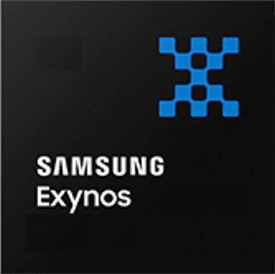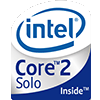
Samsung Exynos 7880 Benchmark, Test and specs
Last updated:
The Samsung Exynos 7880 has 8 cores with 8 threads and is based on the 1. gen of the Samsung Exynos series. The processor was released in Q1/2017. The Samsung Exynos 7880 scores 158 points in the Geekbench 5 single-core benchmark. In the Geekbench 5 multi-core benchmark, the result is 976 points.

| Name: | Samsung Exynos 7880 |
|---|---|
| Family: | Samsung Exynos (46) |
| CPU group: | Samsung Exynos 7570/7870/7880 (4) |
| Architecture: | Cortex-A53 |
| Segment: | Mobile |
| Generation: | 1 |
| Predecessor: | -- |
| Successor: | -- |
CPU Cores and Base Frequency
The Samsung Exynos 7880 has 8 CPU cores and can calculate 8 threads in parallel. The clock frequency of the Samsung Exynos 7880 is 1.90 GHz. The number of CPU cores greatly affects the speed of the processor and is an important performance indicator.
| CPU Cores / Threads: | 8 / 8 |
|---|---|
| Core architecture: | normal |
| Cores: | 8x Cortex-A53 |
| Hyperthreading / SMT: | No |
|---|---|
| Overclocking: | No |
| Frequency: | 1.90 GHz |
| Turbo Frequency (1 Core): | -- |
| Turbo Frequency (8 Cores): | -- |
Internal Graphics
The Samsung Exynos 7880 has integrated graphics, called iGPU for short. Specifically, the Samsung Exynos 7880 uses the ARM Mali-T830 MP3, which has 48 texture shaders and 3 execution units. The iGPU uses the system's main memory as graphics memory and sits on the processor's die.
| GPU name: | ARM Mali-T830 MP3 |
|---|---|
| GPU frequency: | 0.60 GHz |
| GPU (Turbo): | 0.60 GHz |
| Compute units: | 3 |
| Shader: | 48 |
| Hardware Raytracing: | No |
| Release date: | Q4/2015 |
| Max. displays: | 2 |
|---|---|
| Generation: | Midgard 4 |
| Direct X: | 11 |
| Technology: | 28nm |
| Max. GPU Memory: | -- |
| Frame Generation: | No |
Hardware codec support
A photo or video codec that is accelerated in hardware can greatly accelerate the working speed of a processor and extend the battery life of notebooks or smartphones when playing videos.
| h265 / HEVC (8 bit): | Decode / Encode |
|---|---|
| h265 / HEVC (10 bit): | Decode |
| h264: | Decode / Encode |
| VP8: | Decode / Encode |
| VP9: | No |
| AV1: | No |
|---|---|
| AVC: | No |
| VC-1: | No |
| JPEG: | Decode / Encode |
Memory & PCIeThe processor can use up to memory in 0 memory channels. The maximum memory bandwidth is --. The memory type as well as the amount of memory can greatly affect the speed of the system. |
|
| Memory type: | Memory bandwidth: |
|---|---|
| LPDDR4-1600 | -- |
| Max. Memory: | |
| Memory channels: | 0 |
| ECC: | No |
| PCIe: | |
| PCIe Bandwidth: | -- |
Thermal ManagementThe thermal design power (TDP for short) of the processor is . The TDP specifies the necessary cooling solution that is required to cool the processor sufficiently. The TDP usually gives a rough idea of the actual power consumption of the CPU. |
|
|---|---|
| TDP (PL1 / PBP): | |
| TDP (PL2): | -- |
| TDP up: | -- |
| TDP down: | -- |
| Tjunction max.: | -- |
Technical details
The Samsung Exynos 7880 is made in 14 nm. The smaller the manufacturing process of a CPU, the more modern and energy-efficient it is. Overall, the processor has 2.00 MB cache. A large cache can greatly speed up the processor's speed in some cases such as games.
| Technology: | 14 nm |
|---|---|
| Chip design: | |
| Socket: | -- |
| L2-Cache: | 2.00 MB |
| L3-Cache: | -- |
| AES-NI: | No |
| Operating systems: | Android |
| Virtualization: | None |
|---|---|
| Instruction set (ISA): | Armv8-A (64 bit) |
| ISA extensions: | -- |
| Release date: | Q1/2017 |
| Release price: | -- |
| Part Number: | -- |
| Documents: | Technical data sheet |
Rate this processor
Benchmark results

The benchmark results for the Samsung Exynos 7880 have been carefully checked by us. We only publish benchmark results that have been created by us or that have been submitted by a visitor and then checked by a team member. All results are based on and fullfill our benchmark guidelines.
Geekbench 5, 64bit (Single-Core)
Geekbench 5 is a cross plattform benchmark that heavily uses the systems memory. A fast memory will push the result a lot. The single-core test only uses one CPU core, the amount of cores or hyperthreading ability doesn't count.

|
Intel Celeron 420
1C 1T @ 1.60 GHz |
||

|
Qualcomm Snapdragon 800
4C 4T @ 2.45 GHz |
||

|
Qualcomm Snapdragon 801
4C 4T @ 2.45 GHz |
||
|
|
Samsung Exynos 7880
8C 8T @ 1.90 GHz |
||

|
AMD G-T56N
2C 2T @ 1.65 GHz |
||

|
Intel Core2 Solo SU3300
1C 1T @ 1.20 GHz |
||

|
Intel Celeron N2910
4C 4T @ 1.60 GHz |
||
Geekbench 5, 64bit (Multi-Core)
Geekbench 5 is a cross plattform benchmark that heavily uses the systems memory. A fast memory will push the result a lot. The multi-core test involves all CPU cores and taks a big advantage of hyperthreading.

|
AMD Phenom II X3 710
3C 3T @ 2.60 GHz |
||

|
Intel Pentium Gold 4425Y
2C 4T @ 1.60 GHz |
||

|
AMD Athlon II X3 445
3C 3T @ 3.10 GHz |
||
|
|
Samsung Exynos 7880
8C 8T @ 1.90 GHz |
||

|
AMD Athlon II X2 280
2C 2T @ 3.60 GHz |
||

|
Samsung Exynos 7904
8C 8T @ 1.80 GHz |
||

|
AMD 3015e
2C 4T @ 1.60 GHz |
||
Geekbench 6 (Single-Core)
Geekbench 6 is a benchmark for modern computers, notebooks and smartphones. What is new is an optimized utilization of newer CPU architectures, e.g. based on the big.LITTLE concept and combining CPU cores of different sizes. The single-core benchmark only evaluates the performance of the fastest CPU core, the number of CPU cores in a processor is irrelevant here.

|
MediaTek Helio P23
8C 8T @ 2.50 GHz |
||

|
Intel Celeron N2930
4C 4T @ 2.16 GHz |
||

|
Intel Celeron N3150
4C 4T @ 2.08 GHz |
||
|
|
Samsung Exynos 7880
8C 8T @ 1.90 GHz |
||

|
Qualcomm Snapdragon 450
8C 8T @ 1.80 GHz |
||

|
Intel Celeron N2920
4C 4T @ 2.00 GHz |
||

|
MediaTek Helio P22
8C 8T @ 2.00 GHz |
||
Geekbench 6 (Multi-Core)
Geekbench 6 is a benchmark for modern computers, notebooks and smartphones. What is new is an optimized utilization of newer CPU architectures, e.g. based on the big.LITTLE concept and combining CPU cores of different sizes. The multi-core benchmark evaluates the performance of all of the processor's CPU cores. Virtual thread improvements such as AMD SMT or Intel's Hyper-Threading have a positive impact on the benchmark result.

|
Intel Core i3-2370M
2C 4T @ 2.40 GHz |
||

|
Intel Celeron G1820
2C 2T @ 2.70 GHz |
||

|
Intel Atom x6416RE
4C 4T @ 1.70 GHz |
||
|
|
Samsung Exynos 7880
8C 8T @ 1.90 GHz |
||

|
Intel Core i3-2100T
2C 4T @ 2.50 GHz |
||

|
MediaTek MT8169A
6C 6T @ 2.00 GHz |
||

|
Intel Celeron 3965U
2C 2T @ 2.20 GHz |
||
iGPU - FP32 Performance (Single-precision GFLOPS)
The theoretical computing performance of the internal graphics unit of the processor with simple accuracy (32 bit) in GFLOPS. GFLOPS indicates how many billion floating point operations the iGPU can perform per second.
|
|
HiSilicon Kirin 650
ARM Mali-T830 MP2 @ 0.90 GHz |
||
|
|
HiSilicon Kirin 655
ARM Mali-T830 MP2 @ 0.90 GHz |
||
|
|
HiSilicon Kirin 658
ARM Mali-T830 MP2 @ 0.90 GHz |
||
|
|
Samsung Exynos 7880
ARM Mali-T830 MP3 @ 0.60 GHz |
||

|
MediaTek Helio G80
ARM Mali-G52 MP2 @ 0.95 GHz |
||

|
AMD GX-209HA
AMD Radeon HD 8180 @ 0.23 GHz |
||

|
AMD GX-210JA
AMD Radeon HD 8180 @ 0.23 GHz |
||
Estimated results for PassMark CPU Mark
Some of the CPUs listed below have been benchmarked by CPU-monkey. However the majority of CPUs have not been tested and the results have been estimated by a CPU-monkey’s secret proprietary formula. As such they do not accurately reflect the actual Passmark CPU mark values and are not endorsed by PassMark Software Pty Ltd.

|
Intel Core 2 Quad Q8200
4C 4T @ 2.33 GHz |
||

|
AMD GX-420CA
4C 4T @ 2.00 GHz |
||

|
Intel Core M-5Y70
2C 4T @ 2.00 GHz |
||
|
|
Samsung Exynos 7880
8C 8T @ 1.90 GHz |
||

|
Intel Core 2 Quad Q6600
4C 4T @ 2.40 GHz |
||

|
Intel Core i7-2637M
2C 4T @ 1.70 GHz |
||

|
AMD GX-424CC
4C 4T @ 2.40 GHz |
||
Benchmarks

Geekbench 5 (SC)
2,488 entries
2,488 entries

Geekbench 5 (MC)
2,461 entries
2,461 entries

Geekbench 6 (SC)
1,755 entries
1,755 entries

Geekbench 6 (MC)
1,703 entries
1,703 entries

FP32 SP (iGPU)
2,042 entries
2,042 entries

PassMark CPU-Mark
2,392 entries
2,392 entries
Popular comparisons
back to index









